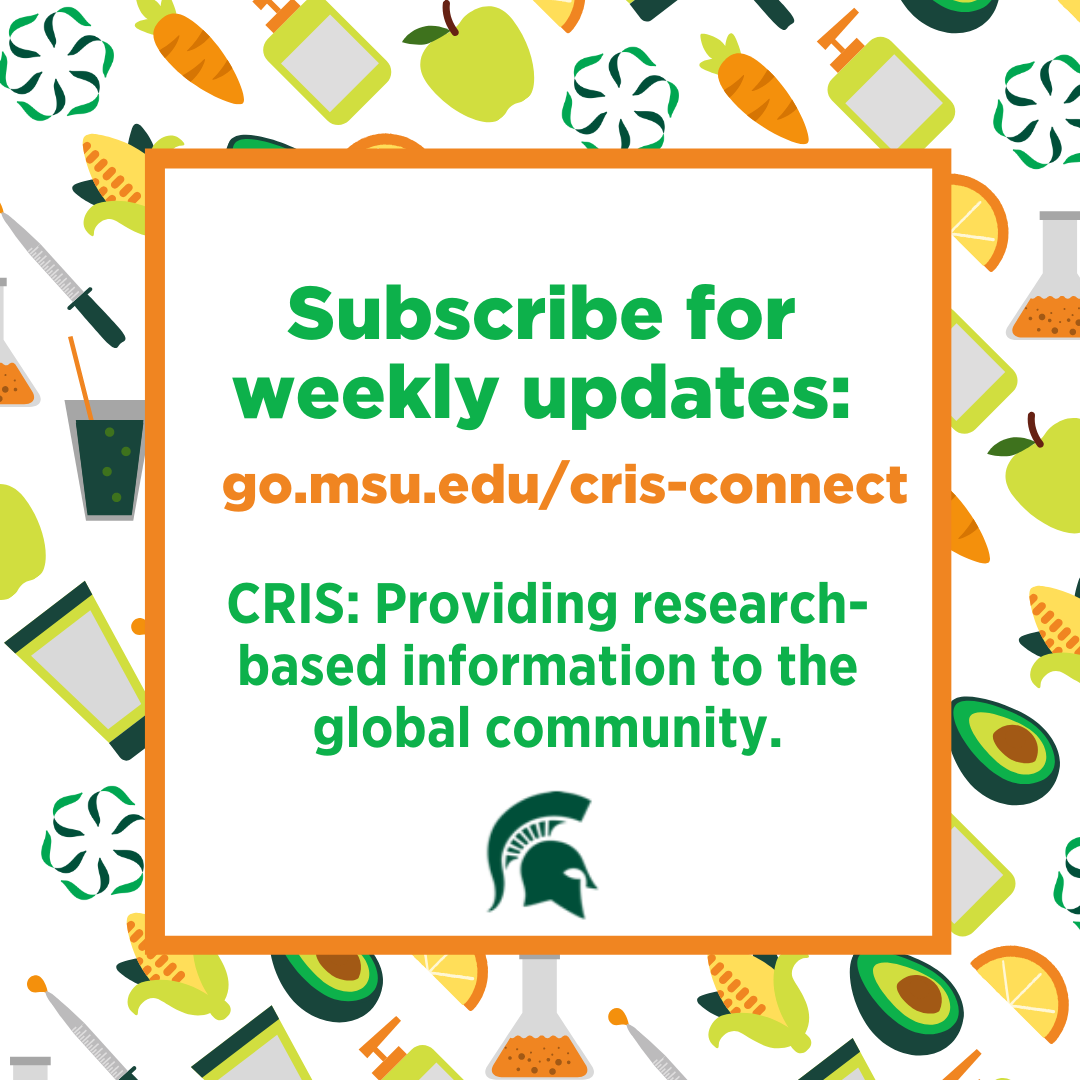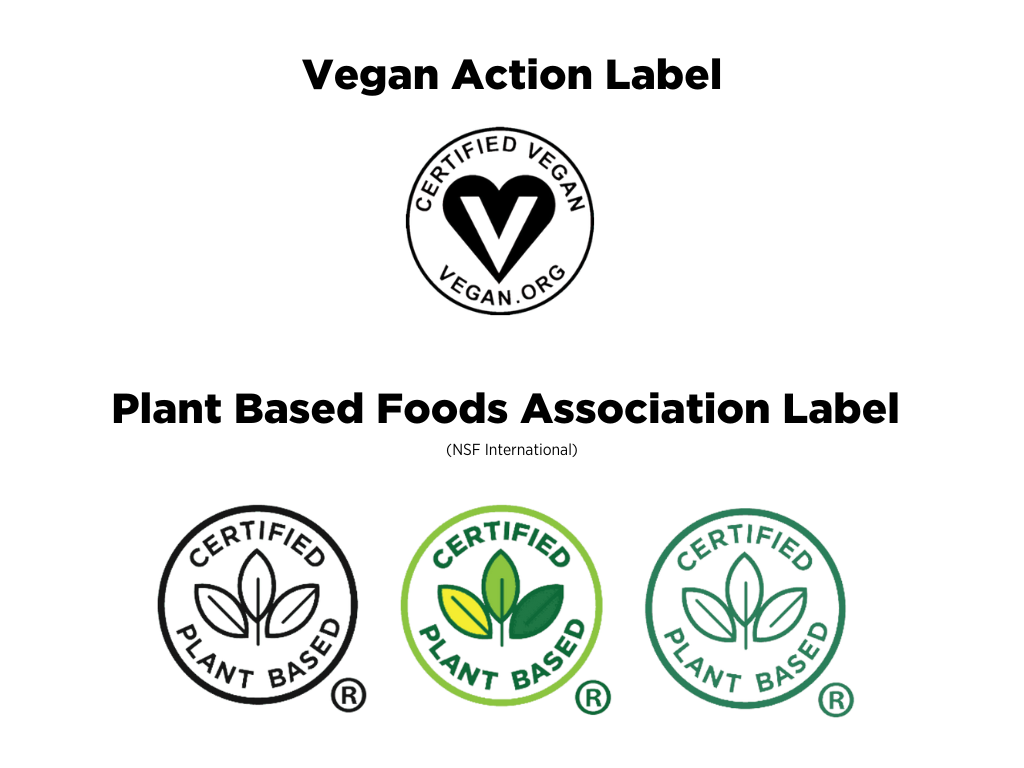Trending – Vegan & Plant-based labeling
We’ve seen an uptick of folks interested in understanding specific marketing labels, specifically vegan, plant-based, and animal-free. In this post, we look at marketing labels and explore what they mean and what they don’t mean.

What is a marketing label?
A marketing label is a featured word or image that is highlighted on a product’s packaging to encourage sales. Often, these words underscore an ingredient or process that implies health, safety, or effectiveness.
What do marketing labels focus on?
These labels typically focus on ingredients and processes that consumers may believe lead to better health, better outcomes, or a lessened environmental impact. For example, some people prefer to buy products they view as healthful and sustainable, so they will look to cues on product packaging such as “all-natural,” “high-fiber,” or other labels that call out a food or product’s positive attributes.
better outcomes, or a lessened environmental impact. For example, some people prefer to buy products they view as healthful and sustainable, so they will look to cues on product packaging such as “all-natural,” “high-fiber,” or other labels that call out a food or product’s positive attributes.
While these labels can have a positive impact, they can also cause some confusion. For example, “gluten-free” has increased in popularity in the past few years, popping up on many products. While this label is vital for individuals with celiac disease, most people do not need gluten-free foods or products for their health. This is what’s referred to as redundant “trend” or “hype” labeling.
What is "trend" labeling?
When health fads become part of mainstream conversations, companies may repackage, relabel, or even reformulate products to meet the trend.
For example, “gluten-free,” “fortified with,” “natural,” and “clean” are common marketing labels found on products. Sometimes these labels, such as “gluten-free,” are put on products that never contained gluten, such as sugar, rice cereal, and even bottled water.
When manufacturers advertise that a product is fortified with a specific ingredient, they are simply advertising the ingredient which is already listed on the “Nutritional Facts” for food or on the ingredient list for cosmetic and other household products. Drawing attention to those ingredients may influence a person’s decision to purchase the product. However, people can read the label and see what ingredients are present without the additional marketing label.
For marketing labels, such as the “clean” label, we can clearly see redundant trend labeling. It’s redundant because manufacturers cannot sell unsafe or unhygienic products to the public, so labeling a product as “clean” does not provide any additional information unless a company defines its use of the “clean” label.
It’s a trend label because it is harnessing a lifestyle fad that has become part of public conversations.
Is vegan, plant-based, and animal-free a trend or marketing labeling? Are they regulated by the government?
Vegan, plant-based, and animal-free labels are considered trend or marketing labels because they do not reflect the health or safety of a product. Health information on food is typically found on the “Nutrition Facts” label. That label will let you know what is in the product and how it fits with your personal nutritional needs.
Vegan and plant-based labels can be certified by a third-party organization, which requires manufacturers to meet specific standards.
To our knowledge, there is no organization certifying animal-free labels.
Which organizations in the USA certify a product as vegan or plant-based?
Vegan Action organization certifies products as vegan. NSF International organization certifies products as plant-based.
You can identify these certifications on products because they will contain the below logos.

What do the vegan and plant-based food association labels certify?
Each organization has slightly different requirements to meet certification standards. In general, the product refrains from using animal-based
- Dyes/pigments
- Materials
- Processing (e.g., filters)
- Ingredients
- Genetic material (e.g., GMO material in plants)
- Testing
You can learn about the different labels directly on the organizations' websites: Vegan Action (https://vegan.org/certification) and Plant Based Foods.
Are all vegan or plant-based products all natural?
All-natural is another marketing label. However, it generally relates to products being plant-derived rather than synthetically derived.
Vegan products may be made from synthetic ingredients. For example, let’s look at red lipstick. Specific all-natural dyes and pigments are made from insects. In order to replace that naturally-derived pigment, a manufacturer would need to use a synthetic dye or a plant-based dye.
Not all color shades can be derived from plant-based dye, so a vegan red lipstick may contain synthetic dye rather than an all-natural pigment made from insects. It’s important to check ingredient labels to make sure you’re buying products that align with your specific values.
Can manufacturers make false claims on marketing labels?
While companies can put marketing labels on products, they must be truthful. If claims are gravely misleading, disingenuous, or otherwise cause harm, the manufacturers are in violation of the Federal Trade Commission’s laws that prohibit false advertising, and that can lead to serious legal repercussions.
Marketing labels are not intended to mislead the public. Rather, they are intended to quickly show what manufacturers believe to be a product’s positive attributes.
The good news.
As consumers, we have purchasing power to buy products that align with our specific values. Reading labels and learning the difference between certifications can help us determine if a product aligns with our personal preferences.
If you have any questions about foods and ingredients, please reach out to us on Twitter, send us an email, or submit your idea to us at go.msu.edu/cris-idea.



 Print
Print Email
Email




